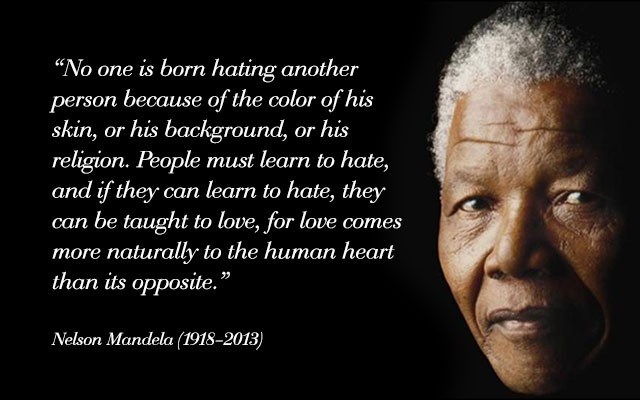The Catholic Church consecrates saints with less pomp and sentimentality than was lavished on Nelson Mandela during the week-long media orgy that we have just been through. We haven't seen such a ridiculous spectacle since...oh, since the 50th anniversary of the assassination of John F. Kennedy a few weeks ago. But at least the Kennedy orgy was over a lot faster — and nobody compared him to Gandhi or Christ.
Pity the poor journalists who had to grind out endless stories about what was hardly a news event at all — 95-year-old man dies after lengthy illness — and inevitably ended up sounding like sycophants and fools. True, the world needed (or at least wanted) a political icon of perfect virtue, but the beatification of Nelson Mandela took much too long.
The problem was that everybody in the media knew well in advance that Mandela was dying, and had time to invest millions in preparing to "cover" the event. Hotel rooms and telecom facilities were booked, crews and anchors were deployed, and the expense had to be justified by round-the-clock, wall-to-wall coverage of funeral orations, vox pop interviews, and talking heads.
And of course all the world's politicians showed up for the greatest photo op of the decade, including many who had condemned Mandela as a terrorist before he pulled off a peaceful transition from apartheid to majority rule in South Africa. But now that the babble of rhetoric has died down and just before the myth takes over completely, let us talk honestly about who he was and what he accomplished.
Mandela understood that South Africans needed an icon, not a mere mortal man, as the founding hero of their new democracy, but he had a strong sense of irony. It would have got plenty of exercise as he watched the local politicos and the foreign dignitaries strew metaphorical flowers on his grave.
The man whom they buried at Qunu on Sunday was arrested by the white minority regime in 1963, probably on a tip from the U.S. Central Intelligence Agency. He was the head of the African National Congress's military wing, Umkhonto we Sizwe (MK), at the time, and continued to back its campaign of sabotage, bombing and attacks on military and police targets throughout his 27 years in prison.
If the South African Communist Party is to be believed, he was a member of its central committee at the time of his arrest. It was a different time, when U.S. President Ronald Reagan could declare that the apartheid regime was "essential to the Free World," and the ANC's main international supporters were the Soviet Union and Cuba. Mandela might have ended up as a man of violence if he had not gone to prison.
Instead, in prison, he had the time to develop his ideas about reconciliation and persuade the other ANC leaders who were also confined to Robben Island of their value. By the time he came out of prison in 1990, he had become the man that everybody knew they could trust — including the whites.
During the next four years, when he and F.W. De Klerk, the last white president, negotiated the transfer of power from the white minority to the black majority, he really was the indispensable man. His commitment to reconciliation was so visible and genuine that whites were willing to do what had once seemed inconceivable: to hand over power before they absolutely had to.
If you want to know what South Africa would have looked like if the whites had clung to power down to the last ditch, look at Syria today. But it was not only Mandela who saved the country from that fate: they gave the Nobel Peace Prize to both Mandela and De Klerk, because the miracle could not have happened if De Klerk had not had the will and the skill to lead his own Afrikaner tribe out of power.
Then, after the first free election in 1994, Mandela became the president, and frankly he wasn't very good at it. He had no executive experience, nor much aptitude for it.
Thabo Mbeki did most of the hard administrative work behind the scenes during Mandela's presidency (1994-1999), while Mandela greeted visiting celebrities, hobnobbed with the rich and famous, and solicited donations for various causes that included, unfortunately, his own extensive family. He was not personally corrupt, but he was involved in a few dubious deals, and he tolerated corruption in others.
But he did his country one last big favour: he retired at the end of his first term rather than clinging to power. He was already 81 years old at that time, but lesser men (Robert Mugabe of Zimbabwe, for instance) have not let that stop them. And he even had a few good years left to enjoy his family before age began to drag him down.
He was not a saint; he was just a man. But he was the right man at the right time.
Gwynne Dyer is an independent journalist whose articles are published in 45 countries.




